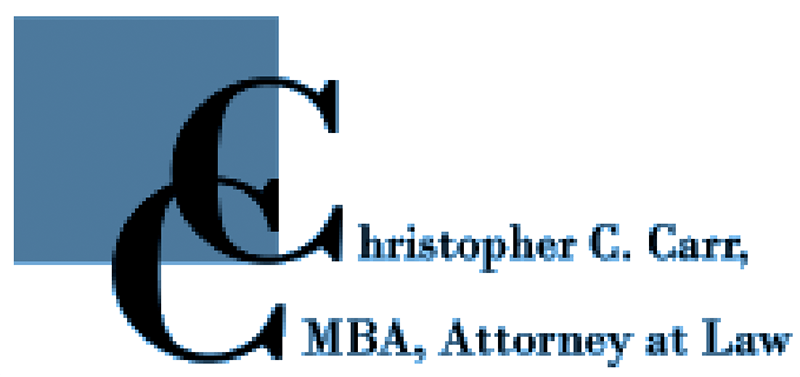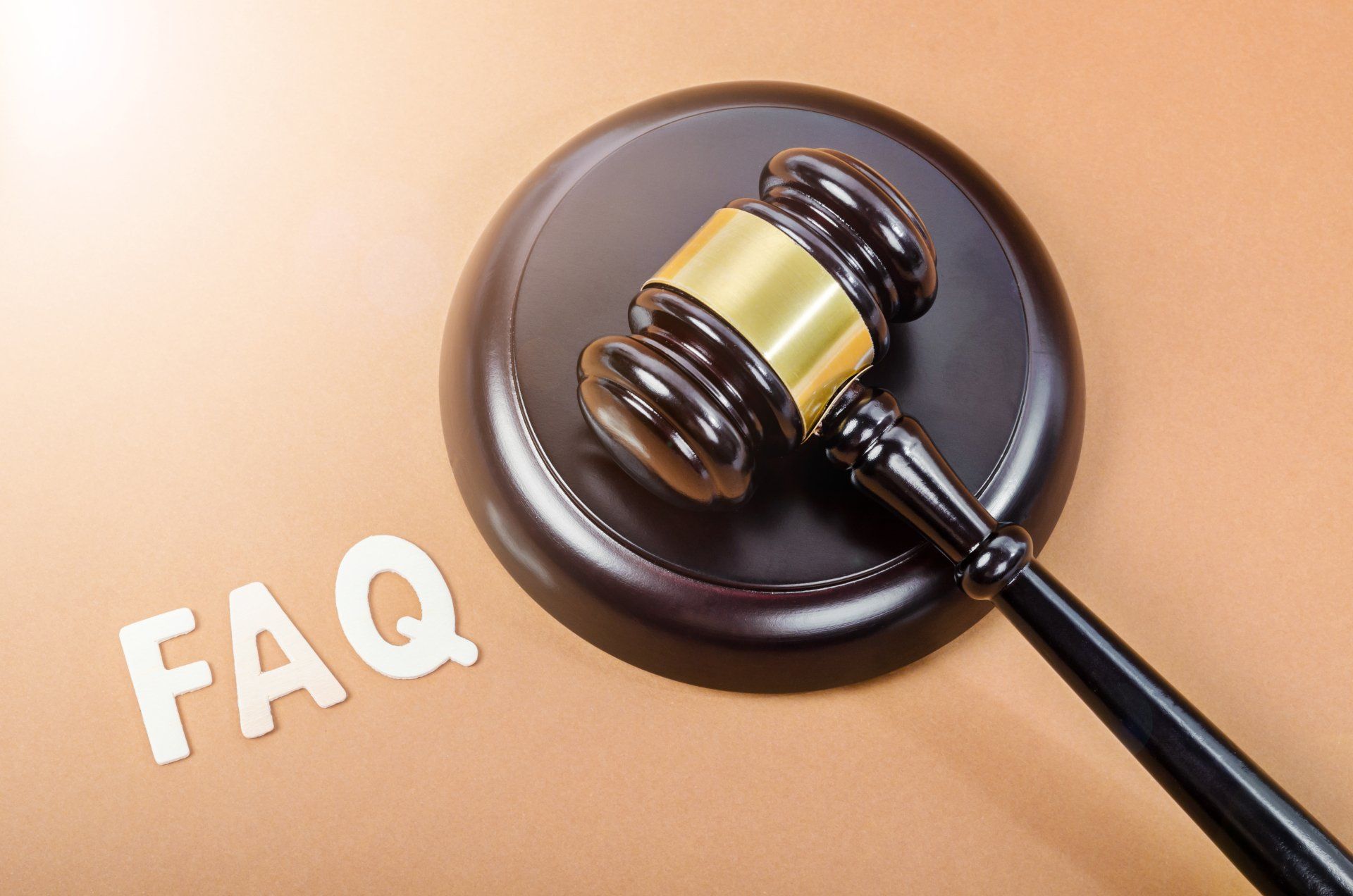FAQ's
Frequently Asked Questions Regarding Filing for Bankruptcy
Compassionate Philadelphia Main Line Bankruptcy Lawyer
Are you thinking about ending that downhill spiral and taking control of your financial difficulties by filing for bankruptcy, if so, you probably have a lot of questions. At The Law Offices of Christopher C. Carr, MBA. P.C., we can provide answers to those questions. For commonly asked questions, please see below.
-
What Can I Keep?
Under the Federal Bankruptcy Laws , Individuals are able to keep significant assets. Most people don't have to worry about losing their home, car or household goods, and you are allowed to keep more equity in your assets. If you have questions about specific assets and whether or not you can keep them, contact the office.
-
What Kind of Debt Can I Include in Bankruptcy?
All debts are included in bankruptcy and must be disclosed to your attorney and the court. This includes taxes, student loans, marital debt, medical bills, credit cards, home mortgages and car payments. However, even thought all debts are included in bankruptcy, not all debts are dischargeable.
-
What is a Discharge?
Ultimately, the goal of bankruptcy is to have your debts discharged. A discharge is an injunction stating that no one can ever ask you to pay the debt or collect it from you. Most debts can be discharged in bankruptcy. However, certain debts are exempted from discharge due to public policy reasons including those that arise from certain violations of the law. If you have questions about whether your debt can be discharged, contact the office.
-
What are the Different Kinds of Bankruptcy?
There are several different types of bankruptcies but most people fall into one of two options. These are known as chapter 7 and chapter 13. Under chapter 7 (also called a “liquidation bankruptcy”) you are looking to discharge all of your debts. In a chapter 13 (also called a “wage earner” bankruptcy) you intend to discharge the remainder of your debt after you have paid back a portion of the debt and have sufficient income to achieve this goal. Your specific goals and situation will determine under which chapter you file. Contact me to learn more about the differences between chapter 7 and chapter 13 bankruptcy.
-
What are the Costs and Fees?
The cost of a bankruptcy is determined by the complexity of the situation and the type of bankruptcy. The bankruptcy court supervises the attorney fees, and all fees must be approved by the court. In chapter 13 bankruptcy, when you are repaying bills, you must pay bills to trustees appointed by the court. Trustees make payments to creditors on a regular basis. This money is also used to pay the attorney fees.
-
What is the Effect of Filing for Bankruptcy?
After you file for bankruptcy, the court issues what is commonly referred to as an automatic stay? An automatic stay is an injunction that applies to creditors and orders them to stop taking action to collect debt, including telephone calls, letters, wage garnishment and repossession of cars. It also prevents utilities from being disconnected.
-
What will happen to my savings in bankruptcy?
In bankruptcy, you can protect "exempt" property. If an exemption covers the funds in your bank account or non qualified brokerage account, you won't have to worry about losing it in a Chapter 7 bankruptcy or paying some or all of it to your unsecured creditors in a Chapter 13 through your bankruptcy repayment plan.
The federal exemptions provide a wild card exemption or in some states you can elect to use a state wildcard to cover part of your cash or bank account deposits, If an exemption doesn't cover of it, you might still be able to protect some or all of these funds by some careful prebankruptcy planning. For example, acting in good faith, you can spend some of it to purchase necessary items such as replacing that aging refrigerator or for medical or dental procedures you've been putting off.
This can get tricky so it is best to discuss it with a bankruptcy attorney beforehand.
-
What happens to my 401K, IRA or pension in bankruptcy?
IRA, 401K , most pension funds and the like are protected up to 1 million dollars under the federal scheme. Congress has decided that bankruptcy should not be allowed to rob us of our retirement.
-
If I declare bankruptcy will I be able to borrow again?
A Chapter 7 bankruptcy filing will remain as a public record on your credit report for 10 years from the date of filing. It will be automatically removed after the expiration of the ten year period.
A Chapter 13 bankruptcy filing will remain on your credit report for 7 years from the date of filing.
Does this mean that your credit will be impaired for 7 to 10 years? Absolutely not.
First, you can begin to rebuild your credit rating immediately upon the date of your discharge order. Many times, it will be easier after a bankruptcy filing to rebuild your credit because you will no longer have debts that are in excess of your credit limits
The single best thing you can do to rebuild your credit is to pay all of your future bills on time. After a bankruptcy filing, your payment history will be crucial. It is common to see former clients who have rebuilt their ratings within 2 to 3 years after a bankruptcy. Their secret? They paid their mortgage and car loans ON TIME and didn’t miss a payment.
As an example, one recent Chapter 7 client finished her case and obtained her discharge order and exactly 28 months later (2 years and 4 months), she purchased a new house and obtained a competitive mortgage rate (5.5 per cent interest, 30 years fixed).
You will be able to get a new credit card after your bankruptcy case has been completed. It is true that you could be rejected once or twice, but you should be able to obtain approval for a small credit card as long as you are persistent.
You will also be able to apply for student loans, either for yourself or for a child. Specifically, the Bankruptcy Code (11 U.S.C. Section 525) prevents the government from discriminating against individuals on the grounds that they have filed for bankruptcy relief. I have never heard of anyone being denied a student loan on the grounds that they had filed for bankruptcy.
-
How many times can someone file chapter 7 Bankruptcy?
There is no actual limit in terms of number of times you can file. The automatic stay in bankruptcy in essence stays all actions to collect debt, etc, which can be used to stop a foreclosure or repo. for example. It is a powerful tool which is only available in a bankruptcy context.
The limitations are designed to prevent “repeat filers”. For example if you want a discharge of your debts, you must wait 8 years from the date you filed a chapter 7 which was completed to file another Chapter 7. There are lesser restrictions for different combinations of chapter 7 and 13 bankruptcies which you can easily google if interested.
Another type of restriction exists for bankruptcies which are dismissed within one year which limits the protection from creditors that’s available. If 2 or more are filed in the same year there is no protection at all unless ordered by the court. In an extreme case, one involving bad faith., the court can actually bar the debtor from ever filing again without leave of court. The purpose of these rules is to deter a debtor from misusing the system to defeat creditors when he is not actually eligible for bankruptcy or does not intend to go forward.
-
Is bankruptcy or debt consolidation debt settlement better?
While the credit card vendors would like you to think otherwise, bankruptcy is often far better for those who qualify and for whom it is appropriate because it will eliminate all your qualified debt in a Chapter 7 or you will probably only have to pay back a percentage of your debt in a Chapter 13, whereas debt consolidation is only is a glorified payment plan at interest. I(n fact,in order to avoid bankruptcy of the borrower where they stand to potentially lose everything, some major debt consolidators are actually sponsored by the vendors.) It does not get rid of any debt at all! Nor does it reschedule debt. In a 13 on the other hand, you get 36 to 60 months to repay, which is almost always better than consolidation. Debt settlement on the other hand does get rid of some debt but usually far less than a 13 offers and you can still be sued whereas a 7 or 13 stops all suits and collections. To have your particular options analyzed for free, call us at 610 380 7969 or use our response form.
-
What happens if my Chapter 13 bankruptcy "fails" or I can't pay on it any more?
Part 1 Your Mortgage:
Well, first and foremost, your creditors can proceed as if you never declared bankruptcy in the first place. The prebankruptcy status quo is restored. This can be disastrous for unwitting homeowners. You think you are "safe" in your Chapter 13 and you are back to paying the regular amount you were used to paying. But you have a huge arrears hanging over your head because you could not pay during the hard times. That gives the lender the right to obtain a judgment against your property or worse yet maybe they already have one but cannot proceed because 0f the bankruptcy. Now let's say you have missed a couple payments to your trustee. No problem right? You'll catch up when your tax refund comes. Wrong: let's say that little notice of hearing for dismissal for failure to pay your plan got shuffled in with other papers and ignored so you never showed up to prove your case or make some arrangement with your mortgage lender. So, the lender gets what's called a default judgment. It can now proceed to foreclose. I have seen people lose their homes without even knowing it because due to unlucky timing, the foreclosure sale occurs right away, before they can even react. And once that gavel goes d0wn at5 the Sheriff's sale, forget it. You are living in somebody else's house.
-
If you file Chapter 13 Bankruptcy, can your mortgage lender still sue you for foreclosure on the property that is being foreclosed upon?
Technically, once the case is filed, the property becomes a part of the bankruptcy estate and is protected against foreclosure by the “automatic stay” in bankruptcy 11 USC 362 (a)(2). Foreclosure thus is not possible and the suit, if filed, must be dismissed or the lender can be charged with contempt of court and forced to pay huge fines. However, there are several exceptions:
Foreclosure has already occurred. Bankruptcy cannot resurrect prior ownership once a foreclosure sale has occurred, unless the state laws in the applicable jurisdiction permit it,
The Chapter 13 Payment plan is deemed to be infeasible by the court and the case is dismissed,
The debtor for whatever reason voluntarily dismisses the case,
The debtor fails to pay mortgage payments, including any escrows. Mortgage debt is secured debt which must be paid according to its terms during the pendency of the bankruptcy (3 or 5 years). The lender can then petition the court for relief from the automatic stay and foreclose under state law,
The debtor fails to pay any arrears existing at the time of filing. Arrears on secured debt must be “cured” (paid 100%) during the bankruptcy. The lender can then petition the court for relief from the automatic stay and foreclose under state law,
The debtor racks up post filing arrears in other ways such as failure to pay property taxes that imperil the lenders interest in the collateral,
The debtor fails to observe a material non monetary obligation under the mortgage, such as by abandoning the property. The lender can then petition the court for relief from the automatic stay and foreclose under state law, and/or,
The property declines in value such that it is no longer worth the same as the balance due under the mortgage, called “adequate assurances” of payment. Even with a steady stream of payments the lender can move for relief from the stay if the property value does not exceed the remaining balance…in the Eastern District of PA, by about 20%
To learn about which type of bankruptcy is right for you, and to find out more about your rights. Contact our firm TODAY. We will sit down with you and asses your situation and goals


